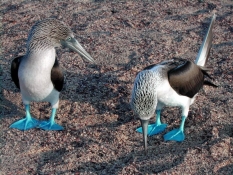Queens
College/CUNY
Education Unit
Spring 2014
Frequently Asked Questions about the Science Methods Course
What is this course all about?
Science is a very powerful way of thinking. It has resulted in many benefits to humankind. It is also responsible for unleashing many terrible things upon humanity. Every time you teach a science concept or skill, you should help your students to consider the ethics and possible consequences and implications of this science and technology. Another important aspect of this course is equity. As a result of this course, you will be prepared to make sure that all students, regardless of gender, ethnic group, and socioeconomic status, have an equal opportunity to experience the excitement and joy of learning science.
Science teachers need to have a good background in many other areas. One of these areas is SCIENCE CONTENT KNOWLEDGE. You will learn this along with other important skills, such as research and inquiry skills, during your science courses. Another important area you need to be familiar with is PEDAGOGY. Your educational foundations courses such as Educational Psychology, Philosophy of Education, etc. will help you to learn in a general way how children learn and teacher's "teach". The third important area, PEDAGOGICAL CONTENT KNOWLEDGE (PCK), is the main subject of "methods" courses. The teaching of the different areas and topics of science often requires very different types of specialized skills and knowledge. In this course you will learn how to apply what you have learned in your science and pedagogy courses.
A good example of PCK is developing an understanding of "children's science" (also called naive or misconceptions) that are common in your area of science. You can determine this by reading the literature, e.g. Rosalind Driver's works, Roger Osborne and Peter Freyberg's book, Learning in Science: The implications of children's science, also by using a variety of tools and techniques (Concept maps, etc.) to learn what ideas your children are bringing to your science class.
Once you have an idea of what your students are bringing to the classroom, you can then try to design learning experiences to modify or replace any misconceptions. This is just one of many of the important skills and areas of knowledge that inhabit the intersection of content and pedagogy.
As you can see, there is a tremendous amount of to learn and it is definitely not possible to asquire it in one methods class and a couple student teaching experiences. Instead, your pre-service teacher preparation is meant to give you some essential tools, a desire to continue learning, and appreciation of the big picture. What it all means is that you will need to continue learning, experimenting and reflecting throughout your career.
What should I do during the field experience?
Field experiences can be extremely valuable, or a complete waste of time. It is entirely up to you. You have a great opportunity to learn and I hope you make the most of it. If you get a chance to be involved in lessons, i.e. the teacher invites you to help, by all means take it! Just remember to ask if you are not sure of what you should be doing.
If you are only observing classes you can still have a great learning experience. There are two important things you should do:
1) Keep a field experience journal. Write down the date, time, class grade level and subject, and the day's topic. After that just write down exactly what you are feeling, observing or thinking.
2) Have a focus for each of your observations. Decide on a question for the observation, i.e. Do the boys and girls participate equally? Does the teacher lecture too much? How much time is wasted in transitions? How much time are the students actually engaged in learning? How much time is wasted? How many times do the students smile? How many times does the teacher smile?
Or, if you don't want to explore a question, focus on an aspect of the classroom. Observe one student for the entire lesson. Other possibilities:
- Describe the physical environment of the classroom.
- Do a safety inspection of the classroom/lab.
- How is technology used?
- Focus on student to student talk. What are their interests?
- Misbehavior in the class. What types are there? How does the teacher handle it.
- See if you can figure out what the teacher's lesson plan is by watching the lesson, i.e. what are the goals, the procedure, etc.
Will we use BlackBoard?
Yes. We will be using the message board and the gradebook functions of BlackBoard. Our course materials are located in 3 places:
1) the web site at http://qcpages.qc.cuny.edu/~bmurfin
2) BlackBoard, at http://www.cuny.edu
What is microteaching?
Microteaching is an old tradition in teacher education. It is basically teaching a mini-lesson to your peers. It can be very useful since it gives you a chance to practice speaking and teaching in a supportive environment with a small number of hopefully well-behaved and motivated students. Usually the microteaching session is videotaped so that the student can see themselves as the students do. A second microteaching session gives the student a chance to make improvements and try out new techniques. Here is more specific information on your microteaching assignment:
